Councilmembers had questions about spending and results for the homelessness initiative now known as All In Mile High
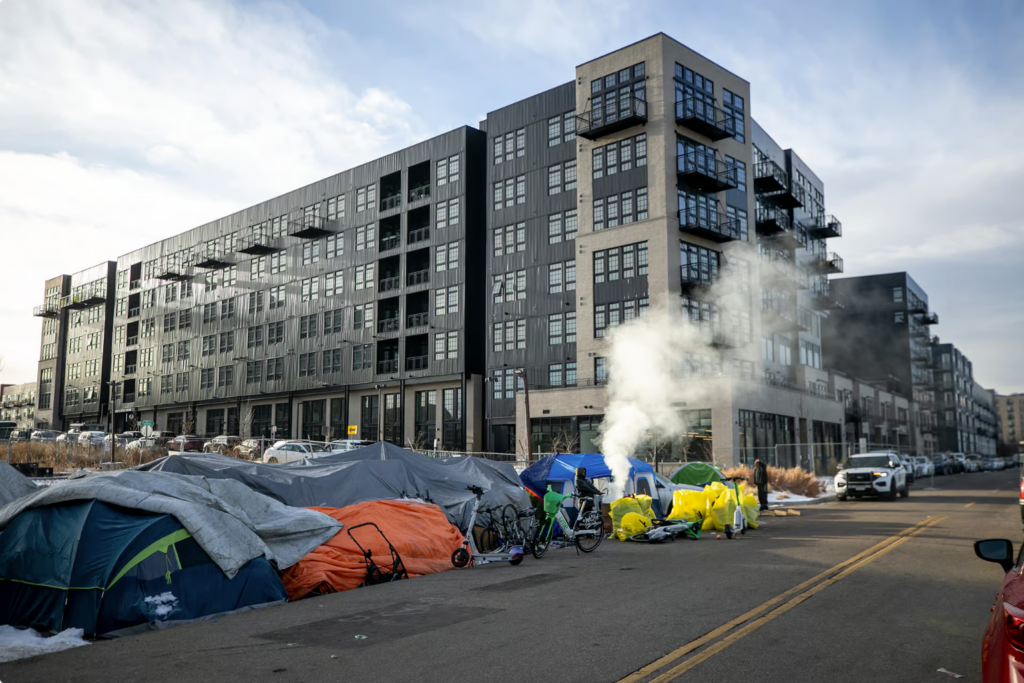
Kevin J. Beaty/Denverite
A city council committee received an update on Mayor Mike Johnston’s All In Mile High budget — this is the continuation of the Denver homelessness initiative started last year under the name House1000 — but many questions are still on the table regarding spending and outcomes.
The briefing during Wednesday’s Safety and Housing committee looked at the budget, staff, outcomes and what’s next this year as the city seeks to take an additional 1,000 people off the streets.
According to the All In dashboard, the city is on its way to sheltering an additional 1,000 people.
As of March 27, the dashboard reports that about 1,400 people have been moved indoors total.
To complete the goal, the city will continue closing encampments and moving people living there indoors. The city term for this is “encampment resolution,” and Denver expects to do one or two per month. They will also be expanding their new “Direct to Leasing” resolution efforts. That program involves moving smaller encampments directly into housing.
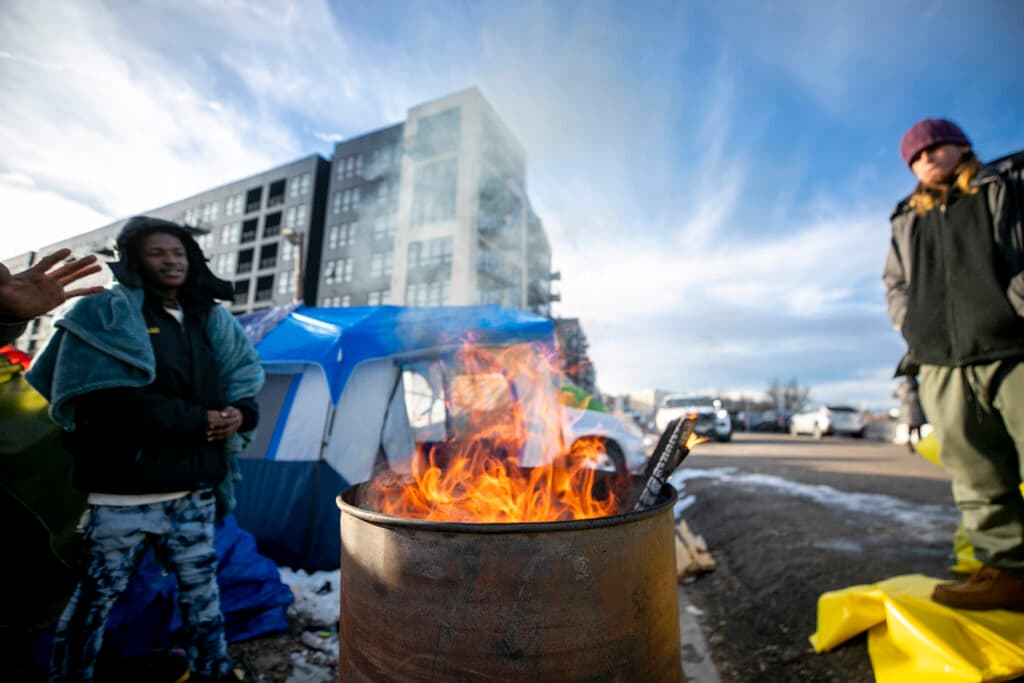
Staffing at the sites will also increase. Cole Chandler, the senior advisor for homelessness resolution, said as more programs start at the sites, the service providers will continuing adding new members to the team. He noted that some of the contracted hiring has been slow because some of the programming hasn’t started yet, like the planned walk-up service center at the Denver Navigation Campus, or the former Doubletree at 4040 N. Quebec St.
Finally, the city is also working on new safety measures at the site. With two shootings and a stabbing, security concerns have been on the minds of Denverites since the beginning of this year.
Chandler said the city will continue looking at how they can better protect shelter residents. Some of those new measures include additional security staff, more cameras and metal detectors.
The city hasn’t spent what it planned to spend… yet.
According to line item charts presented in committee the city was expected to spend about $46 million on the initiative in 2023. That includes hotel purchases, operating contracts and micro-community needs. It doesn’t include service provider contracts.
Chandler said the city only spent $10.3 million of that expected budget because most of the programs launched toward the end of 2023 or earlier this year. Also some acquisitions still haven’t occurred, such as the purchase of the former Best Western hotel.
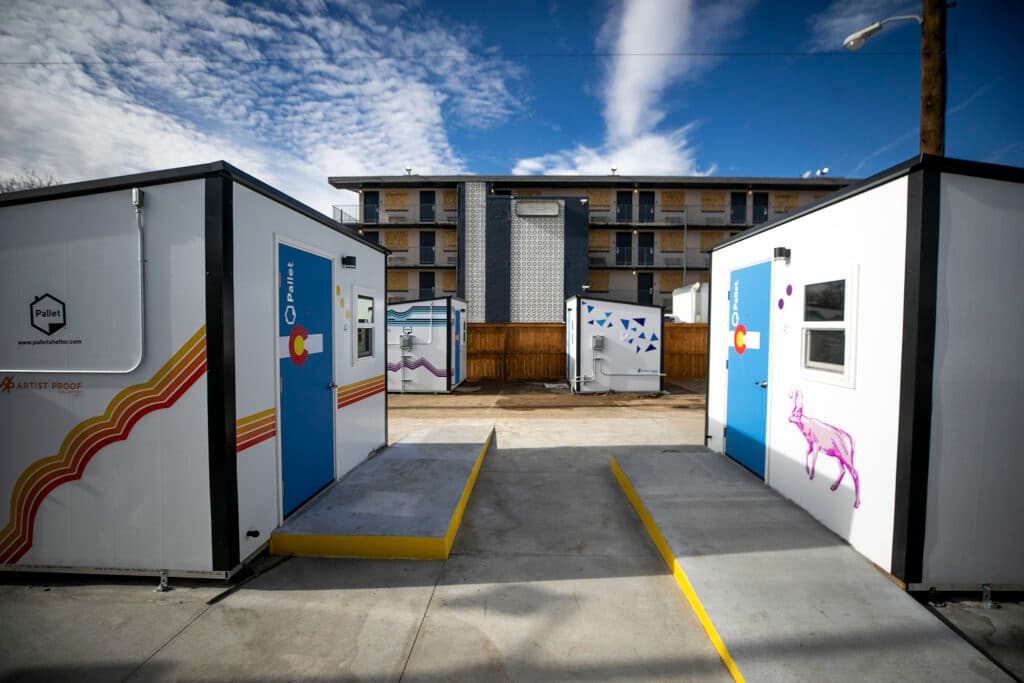
Rachel Bardin, the Financial Manager with the Budget and Management office, said the city still intends to spend the “leftover” $36 million on the leftover allotments. Funding mainly came from the American Rescue Plan Capitol Fund Project.
Council President Jamie Torres asked whether the city actually needed the full $46 million, especially when some of the ARPA funding was redirected to the House1000 initiative and taken away from other programs, including a legacy business preservation program through the Department of Economic Development.
“Part of what I’m concerned about is that we didn’t actually need that much money for the 1,000 goal and that it’s now going to be used to carry over in to the next 1,000 goal, which wasn’t the conversation that we had about House1000 and why $46 million was needed to cultivate toward that goal,” Torres said.
Bardin said the finance department would provide a more thorough chart on what still needs to be purchased and why the full budget amount was needed.
Councilmember Stacie Gilmore also asked for a monthly operational funding breakdown, while Councilmember Serena Gonzales-Gutierrez asked for that breakdown to include service provider contract information.
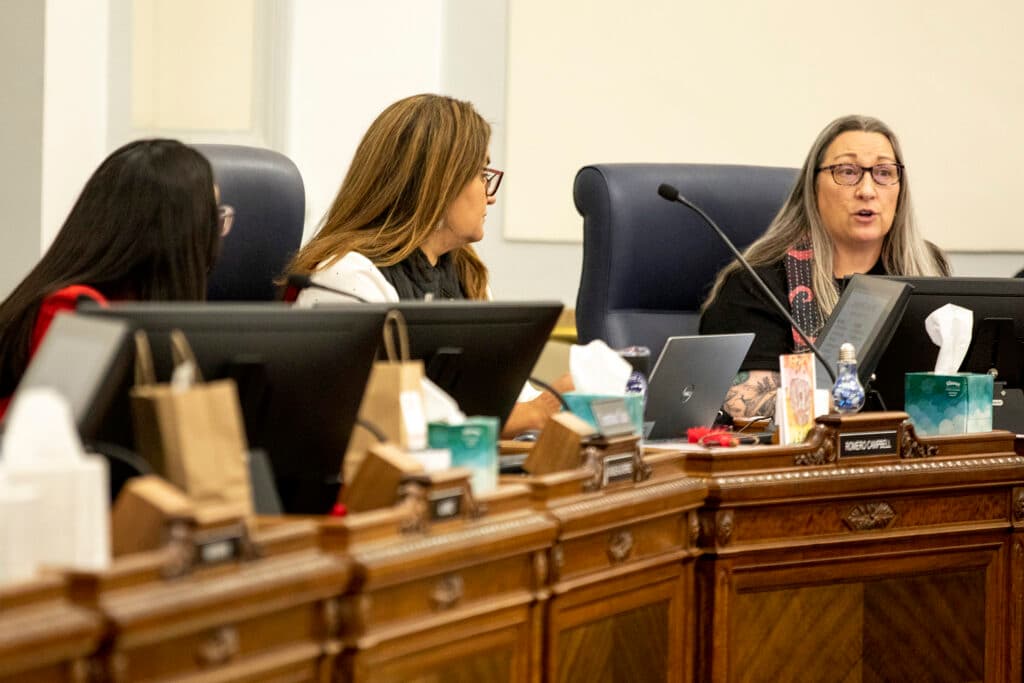
Gilmore also voiced concerns about transparency with the spending.
“We’re all in on this and I want to make sure we’re doing this in a transparent way so that it can be replicated if this is successful,” Gilmore said. “Right now, as a councilperson, I couldn’t even talk to another municipality about the multiple millions that we’ve spent because you haven’t brought us into or shown us good documentation on how you’re exactly funding this… I want to make sure that we are fully transparent on this so that we can be accountable to the taxpayers.”
Midori Higa, the director of homelessness resolution programs with the Department of Housing Stability, told Gilmore she could provide the requested additional information in May.
In addition to spending the rest of the budgeted money from 2023, Chandler said the city expects to spend about $39.2 million in 2024 on the initiative. It’s unclear if some of that money will go toward adding more shelter sites. Added with the leftover money from 2023, that’s about $75 million expected to be spent on the initiative in 2024.
Most people who’ve moved inside are still inside, but progress beyond that is slow and complicated.
Per the dashboard, about 1,419 people have moved inside. Of those, 1,298 people remain indoors and about 399 people of those live in permanent housing.
Exits from the program are noted on the third page of the dashboard and these are folks who have lived in one of the initiative shelters. About 164 people have exited the program with about 43 people leaving the program and continuing to be housed, whether that’s in permanent housing or another shelter.
Councilmember Amanda Sawyer noted that more than half the people exiting the program are doing so in a “negative way.”
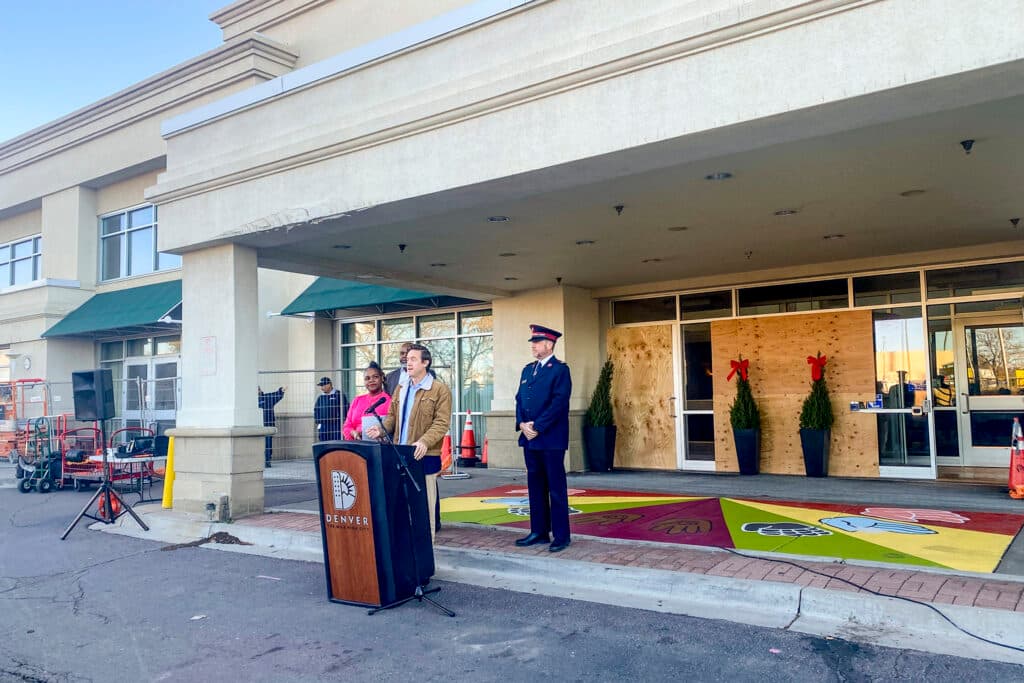
About 66 people have left the program and gone back into unsheltered homelessness, 28 people left but didn’t perform an exit interview so it’s unclear where they are, about 18 people were incarcerated and 9 people have died in the program.
Higa said the program is ultimately new. There’s new staff dealing with how best to approach the situation and with anything new comes growing pains. Higa added that it also takes time for people to get comfortable with the idea of living inside again.
“These are folks that have come inside maybe for the first time and it takes many times to be able to get someone accustomed to what it feels like to be indoors,” Higa said. “It doesn’t mean that everyone who is leaving to an unsheltered exit is doing so because they did something wrong… It could also be that they’re like ‘Whoa, this is crazy. It’s so quiet in here. I’m all alone. There’s nothing here for me so I’m going to go back out to what I know and what I’m accustomed to.’ There’s a lot to learn to be inside and have that practice.”
To better outcomes, Higa said the city has begun case conferencing at each site and looking into the data to note who is leaving from what sites. Through both paths, there’s more communication between the sites to note what’s working and what’s not.
Higa also said the city doesn’t count those who have died in the program as a “negative outcome.”
“There are many reasons why someone can pass away and the primary reason we don’t count ‘deceased’ as a negative outcome is because someone is dying inside. They’re not dying frozen on the street,” Higa said. “There’s a lot of things that can happen that can lead to a ‘deceased’ outcome.”

Higa added that living outside causes strain on the body, essentially aging folks who sometimes can’t recover. Chandler added that the city isn’t tracking how people are dying in the program. The city also doesn’t track deaths at the sites if the person is not in the program.
Sawyer disagreed with the sentiment. Councilmember Flor Alvidrez said the city should begin tracking causes of death, especially if they are drug-related.
According to the city, the nine deaths have occurred at three sites, the Navigation Campus, the Best Western and the Radisson Hotel at 4849 Bannock St.
According to the city’s medical examiner office, 11 people have died at the sites, including those not in the program. Of those 11 people, two were fatally shot, one died from an overdose, and another died from “acute lobar pneumonia with group A streptococcal sepsis complicated by substance use.” The remaining seven deaths are still pending an investigation.
The committee also approved additional related funding.
Besides the program briefing, councilmembers passed a proposed grant agreement between the city and the Caring for Denver Foundation for $2 million. The funding would provide additional behavioral health and substance misuse services to those in the All In program.
About $852,000 will go to HOST, who will support the Colorado Coalition for the Homeless in providing services one day a week to each of the sites.
The remaining $1,148,040 will be managed by the Denver Department of Public Health & Environment who will subcontract the funding to vendors that will provide peer support, therapy and non-traditional therapy such as art therapy.